In the online world, having a robust Content Management System (CMS) is crucial for effective Search Engine Optimization (SEO). As we delve into the year 2024, the importance of selecting the right CMS has never been more significant. This article explores the best CMS options for SEO in 2024, considering key features and industry trends.
What is a CMS?
A Content Management System is a software application that enables users to create, manage, and modify digital content without the need for specialized technical knowledge. It serves as the backbone for website creation and maintenance, playing a pivotal role in enhancing SEO strategies.
Why You Need a CMS for SEO
In the ever-evolving landscape of online visibility, the role of a Content Management System (CMS) in driving effective Search Engine Optimization (SEO) strategies cannot be overstated. The symbiotic relationship between CMS and SEO is integral to the success of any digital presence.
Let’s delve into why you need a CMS for SEO and how it serves as a catalyst for improved rankings and enhanced user experiences.
1. Efficient Content Management
A CMS acts as a centralized hub for all your digital content, providing a structured and organized framework. This not only simplifies the process of content creation but also enables efficient management. With a user-friendly interface, individuals without extensive technical knowledge can seamlessly publish, edit, or remove content. This efficiency is vital for keeping your website dynamic and up-to-date, a key factor in search engine algorithms.
2. Implementation of SEO Best Practices
One of the primary functions of a CMS is to empower users to implement SEO best practices effortlessly. Customizable fields for meta titles, meta descriptions, and header tags allow for the strategic placement of keywords, optimizing content for search engine crawlers. This, in turn, enhances the discoverability of your content, contributing to higher search engine rankings.
3. Facilitates Content Customization
A CMS provides the flexibility to customize content according to your SEO strategy. Whether it’s creating landing pages, updating product descriptions, or incorporating multimedia elements, a robust CMS streamlines these processes. The ability to tailor content based on SEO insights and trends ensures that your website remains relevant and competitive in the digital landscape.
4. Optimization for Search Engines and Users
Beyond mere visibility, a CMS facilitates optimization for both search engines and users. Responsive design options and mobile-friendly features are crucial components that enhance the user experience, directly impacting your SEO performance. As search engines prioritize websites with seamless mobile experiences, a CMS ensures that your site meets these criteria, contributing to higher rankings.
5. Contribution to Improved User Experience
User experience is a key factor in SEO, and a CMS plays a pivotal role in shaping it. Through intuitive interfaces and easy navigation, a CMS enhances the overall experience for website visitors. By offering a seamless and engaging journey, you not only retain users but also reduce bounce rates—an aspect closely monitored by search engines when determining the relevance and quality of a website.

Features to Look for in a CMS for SEO
Selecting the right Content Management System (CMS) is pivotal for a robust SEO strategy. In this section, we’ll explore the key features that distinguish an SEO-friendly CMS, empowering you to make an informed choice that elevates your website’s performance in search engine rankings.
Customizable Page Elements
A top-notch CMS should allow easy customization of meta titles, meta descriptions, and header tags, empowering users to optimize content for search engines.
Internal Linking
An effective CMS promotes internal linking, aiding in better navigation for both users and search engine crawlers. This enhances the overall structure and SEO performance of the website.
Mobile-Friendly/Responsive Design Options
Given the increasing mobile usage, a CMS with mobile-friendly and responsive design options ensures optimal user experience and aligns with search engine preferences.
SEO Plugins
Look for CMS platforms that support SEO plugins, offering additional tools and features for optimizing content, images, and other elements.
Easy Redirection Tools
A CMS should provide simple and efficient tools for managing redirects, helping maintain SEO equity when restructuring the website or updating URLs.

Best CMS for SEO in 2024
The choice of a Content Management System (CMS) significantly influences your website’s SEO performance. As we venture into 2024, let’s delve into the distinctive features of some of the best content management systems for SEO, each offering unique advantages to boost your website’s visibility and search engine rankings.
WordPress
Undoubtedly one of the most popular SEO-friendly CMS platforms, WordPress, continues to dominate the market in 2024. Known for its user-friendly interface, extensive plugin ecosystem, and SEO-friendly features, WordPress empowers users to optimize their content easily. From customizable permalinks to SEO plugins like Yoast, WordPress provides a comprehensive toolkit for enhancing search engine visibility.
Drupal
Drupal, with its robust and flexible architecture, caters to users seeking a powerful CMS solution for SEO. Its modular design allows for extensive customization, making it an ideal choice for large-scale websites. Drupal excels in providing a scalable platform with advanced SEO capabilities, offering control over metadata, URL structures, and content hierarchies.
Shopify
Designed with e-commerce in mind, Shopify stands out as a CMS tailored for online retailers in 2024. Beyond its intuitive store management features, Shopify integrates SEO tools seamlessly. Users can optimize product pages, meta descriptions, and URLs easily, ensuring that their online stores are not just visually appealing but also rank high on search engine results pages (SERPs).
HubSpot
HubSpot, known for its comprehensive inbound marketing tools, extends its capabilities to CMS functionalities. In addition to content creation and management, HubSpot offers built-in SEO features. From on-page optimization suggestions to content strategy tools, HubSpot simplifies the SEO process, making it an attractive option for businesses focusing on integrated marketing strategies.
Wix
Wix has evolved into a versatile and user-friendly CMS, particularly suitable for small to medium-sized businesses. With its drag-and-drop interface and a range of SEO tools, Wix simplifies the optimization process. Wix’s SEO Wiz guides users through the steps to enhance their site’s search engine performance, making it accessible for those with limited technical expertise.
Squarespace
Squarespace combines aesthetics with functionality, offering a visually appealing CMS with built-in SEO features. Its clean and responsive design templates contribute to a positive user experience, while SEO options like customizable meta tags and mobile optimization ensure that Squarespace websites are search engine friendly.
Webflow
Webflow caters to users who prioritize design flexibility without compromising on SEO capabilities. With a visual development approach, Webflow enables users to create responsive and SEO-friendly websites. Customizable meta tags, clean code output, and seamless integration of third-party SEO tools make Webflow a compelling choice for designers and developers.
Joomla
Joomla, with its balance between flexibility and ease of use, remains a contender in the CMS landscape. With a strong community and a variety of extensions, Joomla provides robust SEO features. Users can manage metadata, create SEO-friendly URLs, and implement other optimization techniques to enhance their website’s visibility.
Need help in picking the best website CMS in 2024? Talk to the experts at LeadOrigin today!

How do I choose the best CMS option for me?
Selecting the right Content Management System (CMS) is a pivotal decision that profoundly impacts your online presence. To make an informed choice tailored to your unique needs, consider the following factors: your specific requirements, technical expertise, and long-term goals.
- Define Needs: Identify your website’s specific requirements, audience, and unique features to narrow down CMS options.
- Assess Technical Expertise: Consider your team’s technical skills or your own capabilities. Choose a CMS that aligns with your comfort level and available expertise.
- Consider Long-Term Goals: Look beyond immediate needs and choose a scalable CMS that can adapt to business growth and changing strategies.
- Evaluate Scalability and Flexibility: Choose a CMS that balances scalability for growth and flexibility for customization as per evolving industry trends.
- Examine SEO Capabilities: Prioritize platforms that facilitate easy customization of meta elements and support SEO plugins for streamlined optimization.
- Explore Support and Community: Consider the level of user support and community size associated with each CMS for access to resources and reliable assistance.
How much does a CMS cost?
CMS costs vary, ranging from free (open-source) to subscription-based models. Evaluate your budget and requirements to find a CMS that aligns with your financial plan.
Navigating Your Digital Future with LeadOrigin
As you navigate the myriad options for Content Management Systems (CMS) in 2024, the choices made today will shape your digital future. By prioritizing your specific needs, evaluating technical considerations, and foreseeing long-term goals, you lay the groundwork for online success. The scalability, flexibility, and SEO capabilities of your chosen CMS will not only define your present but also determine how well you adapt to the ever-evolving landscape of the digital realm.
Choosing the right CMS is pivotal for a successful online presence and SEO strategy in 2024. For expert guidance in web development and SEO, consult with LeadOrigin—a trusted industry leader. Serving small to medium-sized businesses in Austin, Dallas, and Houston, TX, they combine cutting-edge technology with a personalized approach to elevate your digital presence. Make the right choice for your website’s success—contact LeadOrigin today.

